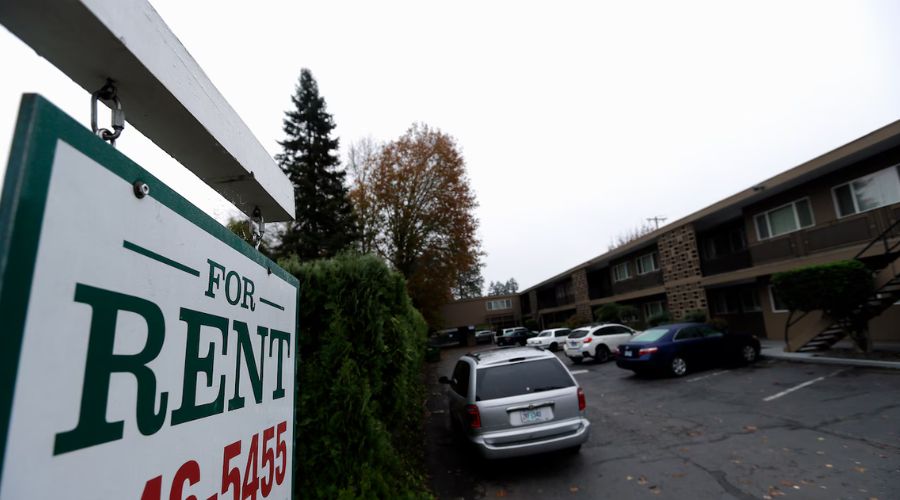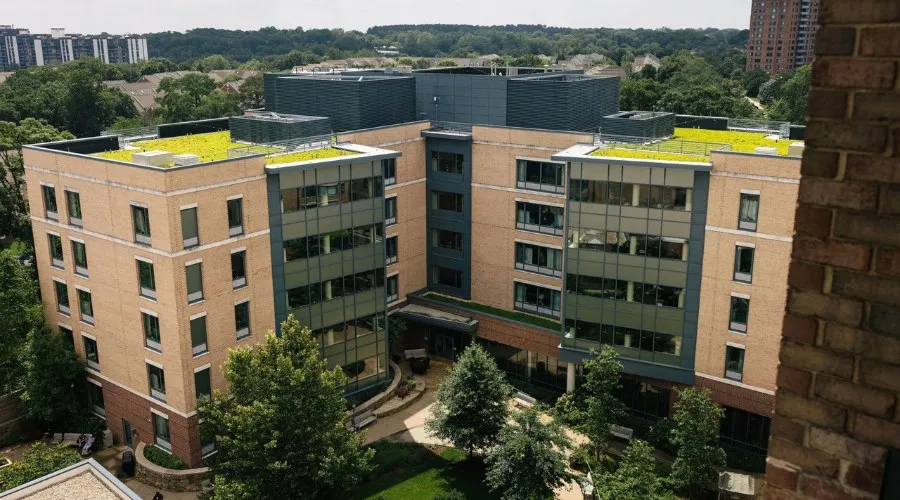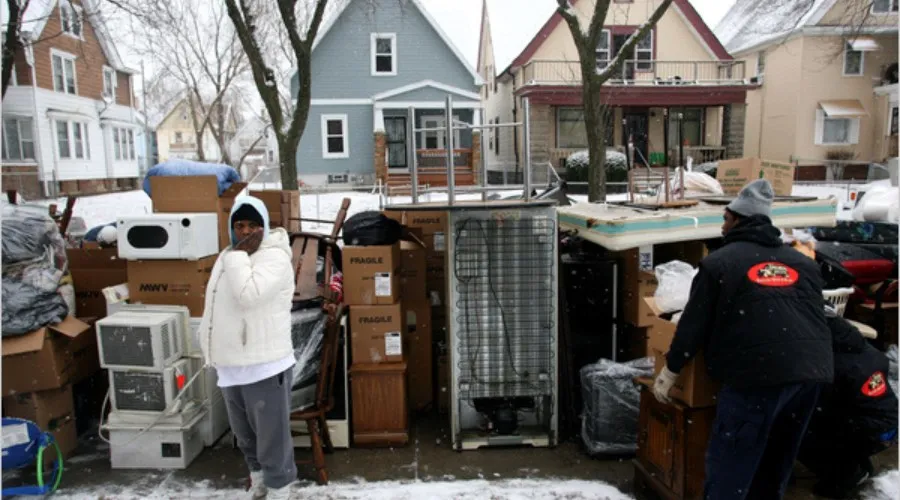Maine rent control laws are emerging topics since the state does not have a state-wide law. But it allows some cities like Portland and South Portland to set their own rules. This helps address the local rising housing costs and enhances rent stability. The guide from LeaseRunner walks you through local rent control regulations. It includes practical tips for landlords to maintain positive relationships with renters.
Overview of Maine Rent Control Laws
The Housing Security Board enforces landlord regulations and imposes legal penalties for landlords who violate rules. Maine does not have state-wide laws establishing rent caps. Instead, the state relies on municipalities to adopt their own rent control ordinances. Currently, only Portland and South Portland have enacted local rent control measures after voter approval.
Rent control is a controversial topic in Maine because many people believe that it would restrict new housing development. As a result, many cities’ proposals for broader rent stabilization laws failed. Over the years, Maine’s legal framework for rent control has remained primarily local and city-driven.
The lack of rent stabilization laws in Maine leaves many renters exposed to sudden price hikes and insecurity. This gap contributes to displacement and worsens the state’s affordability crisis, as highlighted in Maine’s Self-Imposed Housing Crisis (2025).
Local Rent Control Ordinances in Maine
Portland and South Portland are the only cities with rent control specifics in place. These rules establish rent increase limits, notice requirements, and key tenant rights and protections.
Understanding Portland’s Rent Control Law (2025 Update)
In Portland, landlords can only raise rent once every 12 months, even with new tenants. The legal rent increase policies impose rent increase limits to 100% of the Consumer Price Index rate. This ensures adjustments reflect real cost-of-living changes while preventing sudden spikes.
For 2025, the maximum legal rent increase calculation was capped at 2.5%, equaling 70% of the regional CPI. This defines the ceiling for rent adjustment methods while keeping housing affordable.
On one hand, the system gives tenants more predictability and shields them from steep rent hikes. On the other hand, landlords may feel constrained, especially if property maintenance costs rise faster than the capped percentage. The policy seems designed to address Portland’s affordability crisis by slowing rent growth in a city where demand has historically outpaced supply.
Additionally, the local authority requires landlords to register their rental properties with the city. They also have to provide an annual certification of their compliance with the rent cap. This reporting system helps Portland maintain rent stability across its rental market.

Highlights of South Portland’s rent control ordinances
South Portland enacted its Rent Stabilization Ordinance in May 2023. It aims to address housing affordability and relieve market pressure. The local rent control ordinance applies primarily to larger rental properties and multi-unit buildings. This is different from Portland’s broader coverage. In addition, the law covers most residential rental units in South Portland that were built before April 1, 1984.
The state’s rent increase guidelines include:
- Annual rent increases are capped at the lower of 5% or 100% of the Consumer Price Index (CPI).
- For buildings with 16 or more units under common ownership, the landlords cannot raise rent by more than 10% a year.
- For 2022, this translated into a maximum 5% increase. This ceiling applies both to sitting tenants and between tenancies.
South Portland’s local rent control rules have not changed as of 2025. This maintains the landlords’ stable income while renters still afford to pay rent.
Exemptions from the Maine Rent Control Laws
Exemptions apply to the cities that have local rent control ordinances. Landlords in Portland and South Portland must understand these cases to avoid costly fines and legal disputes with the tenants.
Exempt properties from Portland’s rent control rules
Portland’s rent increase limits do not apply to the following properties:
- Owner-occupied buildings (≤ 4 units): This includes duplexes, triplexes, or small rentals. When landlords live on-site, they exclude these properties to support small landlords.
- New construction after April 2020: Any unit built or given a certificate of occupancy is exempt. This encourages new housing development.
- Subsidized housing: Houses with Section 8 vouchers, or other government-funded initiatives, are exempt from rent increase rules.
- Institutional accommodations: Dormitories, nursing homes, universities, hospitals, or religious houses with a long-term lease are exempt.
- Accommodations providing short-term rentals: Hotels, inns, and boarding houses are exempt from the rent increase limits..

Common cases of exemptions in South Portland
Still, several exemptions apply:
- Owners-occupied buildings with no more than five units are not covered.
- Affordable housing programs: Affordable housing programs exclude units under HUD, Section 8, or local affordability programs.
- Single-family Owner-occupied properties: Individually owned homes or condos used as rentals are not included.
- Institutional housing: Dorms, nursing homes, and similar specialized housing are exempt.
Rent Increase Requirements for Maine Landlords
Maine does not have rent control laws at the state level, but landlords must comply with state-wide rules on rent increase notice. Some cities, like Bangor, may adopt additional restrictions. Because rent increases can be a sensitive issue, both landlords should establish a clear lease agreement that informs the new rent amount and effective date.
Notice requirements for rent increases
Under the Maine Residential Landlord and Tenant Act (14 M.R.S. §6015), landlords must give written notice before raising rent. The rent increase notification laws require:
- 45 days’ notice if the increase is under 10%
- 75 days’ notice if the increase equals or exceeds 10%.
The notice should align with the legal rent increase notice template. It can be delivered personally, by mail, or electronically if both parties agree. Since 2023, updates to the law have given tenants more time to adjust their budgets or secure new housing. Local ordinances may require longer timelines. For example, Bangor requires 60 days’ notice in the rent increase notification process.
Situations where rent increases are not allowed
Under Maine rent control laws, landlords cannot raise rents in certain situations:
- If the property is uninhabitable (14 M.R.S. §6016): Conditions such as no heat, unsafe electrical wiring, or lack of hot water make a unit legally unfit, and rent increases are prohibited.
- Mid-lease increases: Rent cannot be raised during the lease term unless the lease agreement specifically allows it.
- Anti-discrimination protections: Landlords cannot decide rent hikes based on the tenants’ race, disability, or family status.
- Anti-retaliation rules (14 M.R.S. §6026): A landlord may not raise rent within six months of a tenant reporting housing code violations or asserting legal rights.
- Mobile home parks: Beginning in September 2025, any rent increase requires a negotiation process before taking effect. (See related guidance: Landlord Responsibilities in Maine.)

Penalties for illegal rent increases
If landlords ignore rent increase requirements, the consequences can be costly. Common penalties include:
- Civil fines of $250–$500 per violation.
- Rent hikes declared unenforceable until proper notice is given.
- Tenants can take several actions. They can withhold the illegal increase, recover overpaid rent, or sue for damages.
For retaliatory or discriminatory increases, tenants can recover up to three months’ rent plus legal fees under 14 M.R.S. §6030. In cities like Portland or Bangor, ordinance violations may also trigger local fines or housing board actions.
With new legislative efforts like LD 1765 on the horizon, enforcement may grow stricter in the future. Landlords should keep documentation of compliance. Meanwhile, tenants can seek help from organizations such as Pine Tree Legal Assistance when disputes arise.
Just-Cause Eviction Protections for Maine Tenants
Maine rent control laws lack a statewide system, but strong “just cause” protections prevent unfair evictions. During Maine’s eviction process, tenants have the right to receive clear reasons for the eviction and a written notice within a regulated period. At the same time, landlords can do eviction checks when screening tenants' backgrounds.
Key protections for tenants
Understanding your rights under Maine’s eviction laws can help prevent unlawful evictions. Below are the main safeguards renters should know:
- Just Cause Requirement: Landlords need a valid reason to evict tenants. Examples include nonpayment of rent, serious lease violations, or the lease term ending naturally. You can end month-to-month tenancies with a 30-day notice. Tenants in subsidized housing or domestic violence survivors may get extra protections. This includes the right to leave early without facing penalties.
- Ban on Self-Help Evictions: In Maine, landlords are not allowed to change the locks, shut off utilities, or remove a tenant’s belongings without first obtaining a court order (14 M.R.S. §6014). Tenants can sue for damages, starting at $250 plus attorney’s fees.
- Right to Cure Lease Violations: For issues like late rent, tenants typically get a 7-day Notice to Quit. Paying rent or fixing the violation within this period can stop the eviction from moving forward.
- Habitability Defense: Tenants can use this defense in eviction court if their rental unit is missing necessities—like heat—or has unsafe living conditions. In some cases, this can lead to dismissal of the landlord’s claim. (If unit security is a concern, see Maine Squatter Rights.)

How to respond to eviction protections
If you receive an eviction notice in Maine, timing is critical. Acting quickly increases your chances of stopping or delaying the process.
- Check the Notice: Confirm it is written, states a valid reason, and follows the proper timeline (7 days for curable issues, 30 days for no-cause notices).
- Fix the Problem if Possible: Pay overdue rent or correct the violation within the notice period to reinstate your tenancy.
- Try Mediation: Local programs offer free or low-cost mediation. This can help settle disputes before going to court.
- Prepare for Court: If the case proceeds, bring receipts, photos, or repair requests to support your defense. Tenants have the right to a hearing, appeal, and legal representation.
- Seek Assistance: Programs like Pine Tree Legal Assistance or domestic violence resources can provide legal help or protective orders if needed.
Maine’s eviction prevention program
Launched in October 2024, Maine’s Eviction Prevention Program (EPP) helps renters stay in their homes during tough times. The program helped low-income households by covering back rent and future payments. By mid-2025, it had prevented over 1,600 evictions.
The $18 million funding stopped accepting new applications in June 2025. Still, lawmakers want to expand it for the long term. The proposal, LD 1522, would allocate $25 million to keep the program going across Maine. This shows Maine’s dedication to housing stability.
Practical Tips for Landlords to Resolve Tenant Disputes
Conflicts between landlords and tenants can quickly become expensive if not managed carefully. In Maine, rent control laws and housing rules offer ways to solve disputes without going to court. Here are some options:
1. Use legal mediation services
Mediation is often the quickest and most affordable way to solve conflicts. Landlords and tenants can get fair solutions by involving a neutral third party. This helps with issues like late rent payments or minor lease violations. This approach helps preserve relationships and avoids the high costs of court proceedings. Many cases in Maine resolve within just a few sessions, making mediation a practical first step.
2. File a petition/complaint with the local rent boards
In rent-controlled cities like Portland and South Portland, landlords can turn to rent boards when disagreements arise. These boards review petitions related to rent increases, exemption requests, or ordinance compliance. Filing with a rent board creates a clear, structured process and allows landlords to resolve disputes without entering litigation. It also ensures landlords remain compliant with local notice and filing requirements.
3. Consult with a Maine landlord-tenant attorney
Some disputes are too complex to handle alone. This is true, especially with retaliation claims or habitability issues. A Maine landlord-tenant attorney can explain your rights and duties under state housing laws. This helps avoid expensive mistakes. Legal guidance helps landlords avoid invalid notices and penalties. It also provides strategies to strengthen their case. Though it comes with higher costs, expert support can prevent far more expensive consequences.

4. Initiate court proceedings in the Maine District Housing Court
If all other methods fail, landlords may need to take the case to the Maine District Housing Court. Court proceedings lead to binding decisions. This helps landlords get unpaid rent or take back their property. This step needs strict adherence to state rules and deadlines. Small mistakes can delay or even dismiss a case. The court is effective, but it should be the last choice. First, try mediation and administrative remedies.
Conclusion
Maine has no state-wide rent control law. Instead, cities such as Portland and South Portland set their own ordinances. They limit local rent increases and establish notice requirements for landlords. They must comply with both state-wide laws and local ordinances to avoid penalties. Tenants, in turn, benefit from strong protections against unfair rent increases and evictions. For clear guidance on Maine rental laws and landlord-tenant rights, visit LeaseRunner.
FAQs
1. Can landlords raise rent during a lease term?
No. For fixed-term leases (such as one year), rent cannot be increased unless the lease specifically allows it. In tenancies at will, landlords must follow the 45–90 day notice rule depending on state or local law.
2. What happens if the rent increase rules are violated?
Unlawful increases—such as raising rent without proper notice—are invalid. Tenants may refuse to pay, recover overcharges, or sue for damages (up to three months’ rent plus attorney fees under 14 M.R.S. §6030). Cities like Portland may also impose fines or require mediation.
3. How can landlords resolve disputes without a court?
Options include mediation through the Maine Association of Mediators, petitions to local rent boards, or consulting a landlord-tenant attorney. These routes save time, reduce legal costs, and help maintain stable rental relationships.



